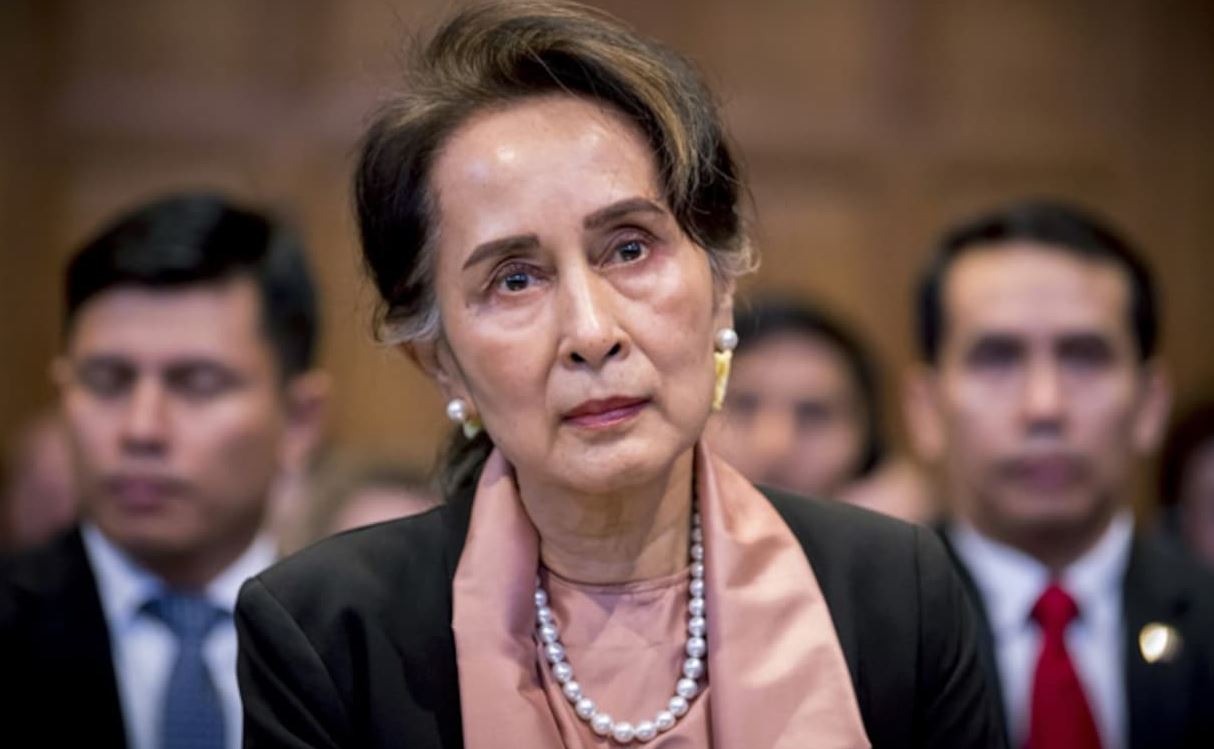Two years after the military conducted a coup in Myanmar, the political party of the country’s imprisoned opposition leader, Daw Aung San Suu Kyi, has been formally disbanded. This is yet another blow to the democracy of the Southeast Asian nation, which occurred exactly two years after the coup.
State media announced late Tuesday night that Myanmar’s military-controlled election panel has abolished the National League for Democracy party. The committee had been formed by Myanmar’s military. The statement prepares the ground for an election that will most likely keep the junta in power for a considerable amount of time in the future.
The NLD said that it will not take part in the next election because it believed the election to be a farce. Nevertheless, as a result of the party’s failure to register with the election commission, Myanmar’s official media, MRTV, announced that the National League for Democracy, along with the other 39 opposition groups, would be disbanded.
In the three elections that came before, the NLD was victorious by an overwhelming margin each time. The party was victorious in the most recent election, which took place in November 2020, and gained 82% of the seats that were up for grabs in Parliament. But before the new Parliament could be sworn in on February 1, 2021, the military launched a coup and detained Ms. Aung San Suu Kyi and Other key leaders of the National League for Democracy (NLD). This prevented the new Parliament from being inaugurated.
Since then, a sentence of 33 years in jail has been handed down to 77-year-old Ms. Aung San Suu Kyi. The military administration levelled a wide variety of accusations against her, including violations of the official secrets act and allegations of corruption. The prosecutions have been criticised as being politically motivated with the aim of preventing Ms. Aung San Suu Kyi from gaining political power, and the United Nations and international human rights organisations have voiced their disapproval of these actions.
After the successful overthrow of the previous government, members of the NLD who had evaded arrest joined forces with legislators from other parties to create a new administration known as the National Unity Government. The group continues to function despite the fact that it has not been recognised by any global organisation. In addition to this, it has provided backing for armed rebel organisations collectively known as the People’s Defense Force. These groups have been involved in deadly conflicts with the military, which is now struggling to maintain control over significant portions of the nation.
Ms. Aung San Suu Kyi has long been a source of contention for Myanmar’s top military brass, who see the country’s unprecedented levels of support for her as a challenge to their authority. Prior to that, she was placed under house arrest and remained there for close to 15 years until 2010. She was awarded the Nobel Peace Prize in 1991 in appreciation of her fight for democracy.
Although while many people in Myanmar continue to hold Ms. Aung San Suu Kyi in high regard, a significant portion of the population is increasingly searching elsewhere for leadership. A younger generation that is more progressive and combative has developed in the two years that have passed since the coup, and this generation is transforming both politics and society.
The military junta had said that this year’s general elections would be conducted by the end of August. But, in February, it declared a six-month extension of the country’s state of emergency, which delayed the vote without offering a new date. The leader of the junta, Senior General Min Aung Hlaing, said that the military was unable to ensure the safety of voters since dozens of townships were not under the jurisdiction of the military.
According to state media, fifty political parties have registered to compete in the election, and thirteen further parties have submitted applications to register. Tom Andrews, who is the United Nations’ Special Rapporteur on human rights in Myanmar, has urged international organisations and election monitoring groups not to provide technical support in the election, as doing so would risk lending legitimacy to the regime. The election will take place on November 8th.
In a report, Mr. Andrews said that the government of Myanmar should “instead, they should clearly reject what will be a ludicrous exercise aimed to preserve military dominance of Myanmar’s democratic system.”
